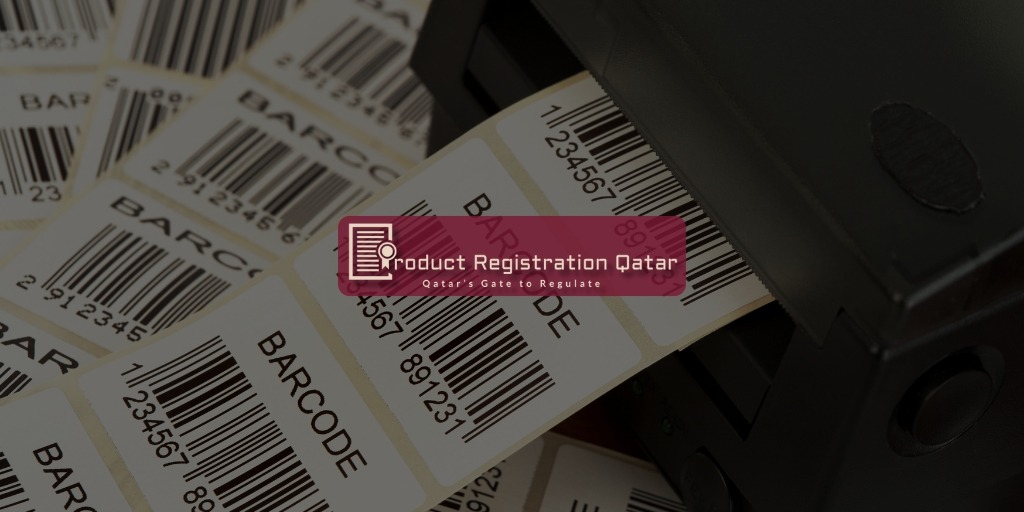Barcode Registration Qatar: Traceability & Compliance 2025
Learn how barcode registration in Qatar ensures product traceability, MoPH compliance, and faster customs clearance for importers and distributors.
BLOGS
9/5/20253 min read


Food Product Compliance in Qatar:
What Importers Must Know in 2025
Qatar’s food industry is expanding rapidly, fueled by imports from around the world.
But getting food products on shelves is not as simple as shipping containers and filling customs forms.
Importers must navigate a strict compliance framework that protects public health and ensures consumer trust.
In this guide, we’ll explore the essentials of food product compliance in Qatar and why a clear strategy is critical for every business entering this market.
Why Food Product Compliance Matters in Qatar
Qatar places a high priority on food safety, with oversight led by the Ministry of Public Health (MoPH), supported by Qatar General Organization for Standards and Metrology (QS), and Customs Authorities.
Non-compliance can result in:
Shipment rejections or delays at ports
Fines or recalls for mislabeling or unsafe ingredients
Loss of market access due to regulatory violations
For businesses, compliance is not just about legal requirements—it’s about credibility and sustainable growth.
Key Elements of Food Product Compliance in Qatar
1. MoPH Pre-Approval
Certain categories—like supplements, fortified foods, or products with functional claims—require prior approval before import. MoPH assesses safety, formula, and labeling for compliance.
2. Label Validation
Labels must follow bilingual (Arabic and English) requirements, with accurate translations, nutritional information, shelf-life, and country of origin. Claims must be backed by evidence.
3. Formula Review
All ingredients must be screened against Qatar’s restricted and banned substances lists. Even small inconsistencies can lead to rejections.
4. Conformity Assessment
Products are checked against Qatar’s technical standards to ensure safety, quality, and consistency with GCC benchmarks.
5. Customs Clearance
Compliant documentation—including certificates of origin, health certificates, and test results—is required for import approval.
Common Challenges for Importers
Translation Errors – Misinterpreted labels or documents create costly delays.
Ingredient Restrictions – Products acceptable elsewhere may be restricted in Qatar.
Changing Regulations – Updates are not always widely published, making it difficult for international companies to stay current.
Multi-Agency Coordination – Submissions often require approvals across different authorities, each with unique requirements.
FAQs on Food Product Compliance in Qatar
Q1: Are all food products subject to MoPH approval?
No, but high-risk categories like dietary supplements, fortified foods, and products with health claims require approval before import.
Q2: How long does approval take?
It varies. Straightforward products may pass within weeks, while complex items requiring formula review may take longer.
Q3: Can existing international certifications replace Qatari approvals?
No. While ISO or HACCP certifications help, Qatar enforces its own specific requirements.
Q4: What happens if a shipment is rejected?
Rejected shipments may be returned or destroyed. Appeals are possible but require clear justification and corrected documentation.
Why Compliance Can’t Be Left to Chance
Importing food into Qatar without a strong compliance plan is risky.
The cost of rejections, delays, and lost trust can outweigh the benefits of market entry.
Ensuring your products meet Qatar’s regulatory requirements is the only way to guarantee smooth access, protect your brand reputation, and build sustainable partnerships.
If you’re preparing to enter the Qatari market, expert support can help you avoid costly missteps.
Our team at Product Registration Qatar specializes in guiding importers through every step of compliance, from label validation to MoPH approvals.
Contact us today—or use the chatbot in the bottom-right corner of your screen—to make sure your products are ready for Qatar’s market.
Explore Related Insights
MoPH Pre-Approval in Qatar – Learn which products require clearance before import.
Conformity Assessment in Qatar: 2025 Product Guide – Understand how technical standards shape compliance.
Quality Assurance Audits in Qatar – Discover how audits strengthen compliance and prevent costly mistakes.
Learn how the MoPH Portal in Qatar works and how to avoid errors that delay approvals in 2025.
Discover the top reasons MoPH rejects products in Qatar and how to avoid them.
Ready to Ensure Your Product is Fully Compliant?
Fill out the form below and let our experts guide you through label checks, formula validation, and registration—step by step.


